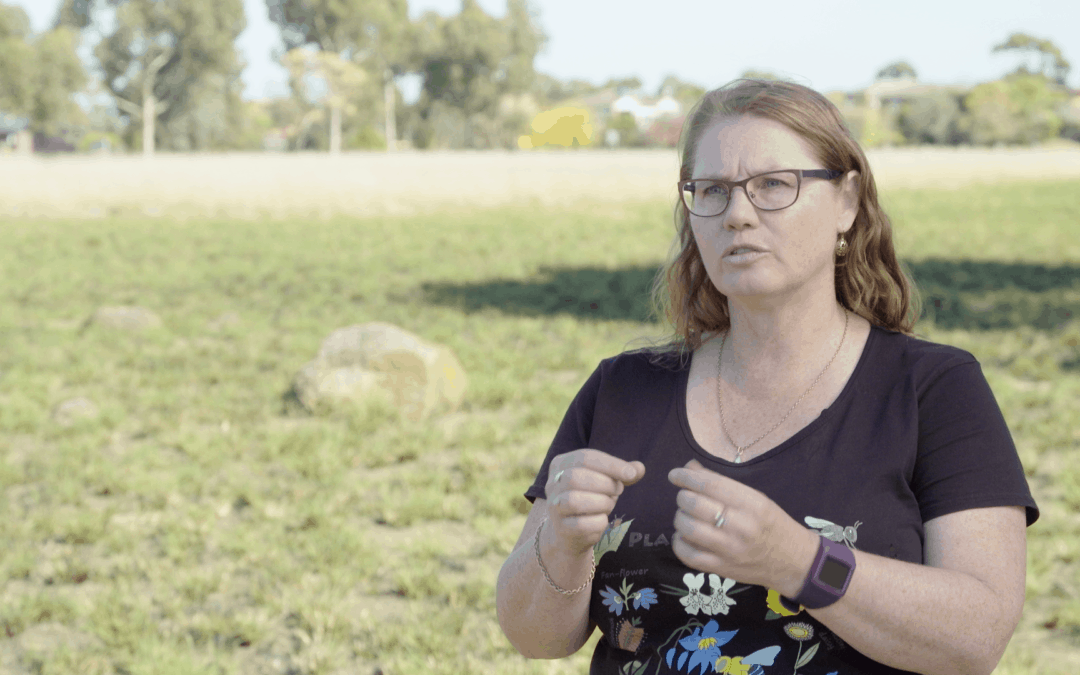The first video and podcast from the Australian Network for Plant Conservation’s Plants Going Places project, funded by the Ross Trust and the NESP Threatened Species Recovery Hub, are now available. The video features the Spiny Rice-flower (Pimelea spinescens subsp. spinescens), learning from mitigation translocations, What happens when a threatened plant is growing in an intended development location? Often under Australian legislation, impacts can be ‘offset’ and the plant translocated. Moved, salvaged, re-grown in pots and planted elsewhere. But does that really work?! The Spiny Rice-flower is arguably Australia’s most salvaged plant and has a few valuable lessons to teach – about ecology, collaboration and open accessibility of knowledge. Over 23 years the team has worked to improve success rates and sharing of outcomes that were once held as ‘client in confidence’, so that everyone involved in translocation has an opportunity to learn what has and has not worked.
Image: Debbie Reynolds from Trust for Nature being interviewed for Spiny Rice-flower video. (Photo credit M. Lawrence-Taylor)

